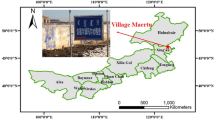
Overview
- Shortlisted for the HSS Margaret W. Rossiter History of Women in Science 2023 Prize
- Funded by the Wellcome Trust, this book is open access under a CC BY 4.0 license
- Explores the interconnected rise of British animal welfare politics, science and activism from the mid-1960s onwards
- Examines the life and work of one of Britain’s most prominent animal welfare activists, drawing on research from the previously restricted papers of Harrison’s charity (Farm Animal Care Trust)
Part of the book series: Palgrave Studies in the History of Social Movements (PSHSM)
Buy print copy
Tax calculation will be finalised at checkout
About this book
new way of thinking about animal welfare. Here, historian Claas Kirchhelle explores Harrison’s avant-garde upbringing, Quakerism, and how animal welfare debates were linked to concerns about the wider ethical and environmental trajectories of post-war Britain. Breaking the myth of Harrison as a one-hit wonder, Kirchhelle reconstructs Harrison’s 46 years of campaigning and the rapid transformation of welfare politics and science during this time. Exacerbated by Harrison’s own actions, the decades after 1964 saw a polarisation of animal
politics, a professionalisation of British activism, and the rise of a new animal welfare science. Harrison’s belief in incremental reform allowed her to form ties to leading scientists but alienated her from more radical campaigners. Many of her 1964 demands gradually became part of mainstream politics. However, farm animal welfare’s increasing marketisation has also led to a relative divorce from the wider agenda of social improvement that Harrison once bore witness to. This is the first book to cast light on the interlinked histories of British farm animal welfare activism, science, and legislation. Its unique scope allows it to go beyond existing accounts of modern British animal welfare and will be of interest to those interested in animal welfare, environmentalism, and the behavioural sciences.
Similar content being viewed by others
Keywords
Table of contents (13 chapters)
-
Front Matter
-
Part III
-
Front Matter
-
-
Back Matter
Reviews
“This book is a must-read for any animal welfare scientist; in my opinion even more so than Animal Machines … . Publisher Palgrave MacMillan provides the book in Open Access so that it can be read by everyone. It is thus a recommended addition to students’ reading list. Bearing Witness is compelling, well-written and unbiased in its biography. … Kirchhelle describes the person behind the facts, with her passion for justice, the mistakes that she made, and her tactics and power to persuade.” (Irene Camerlink, Applied Animal Behaviour Science, Vol. 250, May, 2022)
“For millions of farm animals, the world started to change for the better after Ruth Harrison wrote "Animal Machines" and laboured for many years on UK and International committees. Ruth always believed that there is only one biology and that differences between humans and other species are much smaller than many people thought. Claas Kirchhelle explains beautifully how Ruth came to have such dramatic impact in Bearing Witness.” (Donald M. Broom, Professor Emeritus of Animal Welfare, University of Cambridge, UK)
“A fascinating biography of a woman who changed the way the world treats farm animals, this book fills an important gap in the history of animal welfare.” (Marian Stamp Dawkins, CBE FRS, Professor of Ethology, Department of Zoology, University of Oxford, UK)
“By following Ruth Harrison’s career, Kirchhelle skilfully amalgamates biography with an analysis of British social, intellectual, and political life in the postwar years, charting thegrowing importance of animal welfare as a matter of concern. This book is a welcome and important contribution in an area that is ripe for sustained historical investigation.” (Dmitriy Myelnikov, Historian of Science and Animal Welfare, University of Manchester, UK)
Authors and Affiliations
About the author
Bibliographic Information
Book Title: Bearing Witness
Book Subtitle: Ruth Harrison and British Farm Animal Welfare (1920–2000)
Authors: Claas Kirchhelle
Series Title: Palgrave Studies in the History of Social Movements
DOI: https://doi.org/10.1007/978-3-030-62792-8
Publisher: Palgrave Macmillan Cham
eBook Packages: History, History (R0)
Copyright Information: The Editor(s) if applicable and The Author(s), under exclusive licence to Springer Nature Limited 2021
Hardcover ISBN: 978-3-030-62791-1Published: 06 May 2021
Softcover ISBN: 978-3-030-62794-2Published: 22 January 2022
eBook ISBN: 978-3-030-62792-8Published: 05 May 2021
Series ISSN: 2634-6559
Series E-ISSN: 2634-6567
Edition Number: 1
Number of Pages: XXVI, 271
Number of Illustrations: 4 b/w illustrations, 9 illustrations in colour
Topics: History of Science, Animal Welfare/Animal Ethics, History of Medicine, History of Britain and Ireland, Social History



